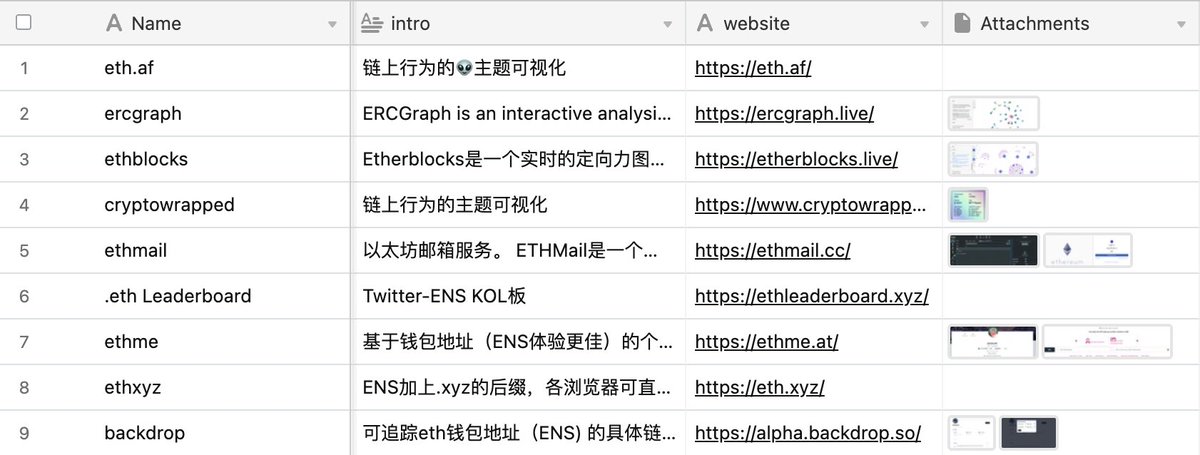
#dailynotes about @ensdomains 🍀
看了ENS生态中的项目(没看完),挑出了一些觉得好玩儿的,大部分都是play out with onchain data 进行的可视化
ens.domains/#home-ecosystem
看了ENS生态中的项目(没看完),挑出了一些觉得好玩儿的,大部分都是play out with onchain data 进行的可视化
ens.domains/#home-ecosystem

2)@pbianciottodev 做的ERCGraph.live 是可交互的分析和可视化工具,显示整个以太坊网络的ERC-20 token的流动
这是ETHOnline 2020 Hackathon项目, idea 源自etherblocks.live
数据集来着 @MetaMask , @POKTnetwork 和 @graphprotocol

这是ETHOnline 2020 Hackathon项目, idea 源自etherblocks.live
数据集来着 @MetaMask , @POKTnetwork 和 @graphprotocol


3) 一个很酷的以太坊邮箱服务 @ethmail_cc ,作者是 @xunkulapchvatal
ETHMail是一个电子邮件托管服务。它为所有拥有Ethereum钱包地址的人提供邮箱(现支持ENS)。
我刚用钱包地址.cc发了一封邮件给自己邮箱,完全能收到!

ETHMail是一个电子邮件托管服务。它为所有拥有Ethereum钱包地址的人提供邮箱(现支持ENS)。
我刚用钱包地址.cc发了一封邮件给自己邮箱,完全能收到!


4)@ethleaderboard 是个Twitter-ENS KOL板,按照ENS推特账户followers多少展示,现在只支持看大V
5)很喜欢🤩 @urbanisierung 做的ethme.at
基于钱包地址(ENS体验更佳)做的个人主页。除了链上行为自动生成之外,还可以自由编辑,比如添加身份DAO member,参加过什么大会hackathon之类的。

基于钱包地址(ENS体验更佳)做的个人主页。除了链上行为自动生成之外,还可以自由编辑,比如添加身份DAO member,参加过什么大会hackathon之类的。


• • •
Missing some Tweet in this thread? You can try to
force a refresh






